
|
IN DEN GÄRTEN PHARAOSPopol VuhKrautrock |
From Progarchives.com, the ultimate progressive rock music website
 I am completely bewildered as to why POPOL VUH only released two electronic albums?
This was their second (and final) electronic album, before Florian Fricke decided to turn to
religion (Christianity and Hinduism) and away from electronics (I can't figure out why his
religious conversions caused him to suddenly hate synthesizers?) and to the piano, with
totally new lineup and musical direction.
I am completely bewildered as to why POPOL VUH only released two electronic albums?
This was their second (and final) electronic album, before Florian Fricke decided to turn to
religion (Christianity and Hinduism) and away from electronics (I can't figure out why his
religious conversions caused him to suddenly hate synthesizers?) and to the piano, with
totally new lineup and musical direction. Now let's get with "In den Gärten Pharoas". In the grand tradition of many Krautrock greats of the era: ASH RA TEMPEL, SCHULZE, TANGERINE DREAM, etc., this album consists of only two side-length cuts. Side one is the title track, in which Fricke's Moog dominates. Mainly it's just electronics and percussion, not going too far off to many of their contemporaries. I can actually see why Fricke lended a hand in TANGERINE DREAM's "Zeit". The music ends with the use of electric piano. Then you have "VUH", largely a SCHULZE-style experiment of droning organ that gets extremely intense with tons of percussion, and Fricke's Moog surfacing. If you never heard this album, and you kept wondering why Florian Fricke was one of the electronic pioneers, but all you ever heard from the guy was him hating electronics, you simply have to look to their pre- "Hosianna Mantra" output and find synthesizers very dominant. Whatever Fricke said of his dislikes of electronics came after his religious conversion. Anyway, "In den Gärten Pharoas" is a recommended album for those who enjoy the early '70s electronic Krautrock scene.
 This is a mightily early piece of ethnic new age music - although calling popol vuh new-age
doesnt' do true justice to one of the finest German bands of the seventies. Their second LP
is closer in style to the first one than it's follow-up Hosianna MAntra which welcomed in
the "classic" Popol Vuh sound of spiritual ethno-folk and anglo-saxon trad. forms mixed with
a rock instrumentation.
This is a mightily early piece of ethnic new age music - although calling popol vuh new-age
doesnt' do true justice to one of the finest German bands of the seventies. Their second LP
is closer in style to the first one than it's follow-up Hosianna MAntra which welcomed in
the "classic" Popol Vuh sound of spiritual ethno-folk and anglo-saxon trad. forms mixed with
a rock instrumentation. No - "Im den Garten Pahros" is more attuned to classic exotica, and this band pioneered that ethnic / eastern musical experimentation heard on this LP - although in the 80s this movement would become a laughing stock - and a couple of isolated Popol Vuh LP's with it. At this point in time though (1971) Florian Fricke and gang where leading the way as far as musical, post-psychedelic exotica was concerned. Soon to become a sampler's staple diet this (and the first) Popol Vuh LP offer up indian percussion, curious moogs that (as Julian Cope states) "course down endless subterranean channels", and delightfully cool Fender Rhodes - a true Garden of Eden musical experience on Side One title track. Side Two's "Vuh" is a hypno-trance out lasting the whole side - a huge mediaeval organ vamping away on one chord while Tibetan drums beat down the multitude. Another Cope quote: "One of thee great Meditational Holy works" - awe-inspiring stuff!!! A musical mantra of the finest order and a great blissed-out LP. All togeter now: "OOOMMMMMMMMMMMM!!!!!!!!"
 In den Garten Pharaos is the second album recorded by Popol Vuh and one of their best. It
is a must for those who love the German electronic scene of the seventies. From the same period,It can easily be compared to T.D "Zeit" recordings but incorporates new elements of inspiration as acoustic and tribal percussions. It's in the direct line of their first effort, very spiritual but less weird and chaotic.The title track is something of a hybrid between cosmic music and heritage of world music. It remains very spacey thanks to bizarre sounds obtained with the Moog-synthesizer.
Many themes of this title will be record for the Nosferatu album. Played on a church organ,
Vuh is unforgettable. From beginning to the end the melodic line is built on the same
pattern, very repetitive and spiritual, ending to a state of trance.
In den Garten Pharaos is the second album recorded by Popol Vuh and one of their best. It
is a must for those who love the German electronic scene of the seventies. From the same period,It can easily be compared to T.D "Zeit" recordings but incorporates new elements of inspiration as acoustic and tribal percussions. It's in the direct line of their first effort, very spiritual but less weird and chaotic.The title track is something of a hybrid between cosmic music and heritage of world music. It remains very spacey thanks to bizarre sounds obtained with the Moog-synthesizer.
Many themes of this title will be record for the Nosferatu album. Played on a church organ,
Vuh is unforgettable. From beginning to the end the melodic line is built on the same
pattern, very repetitive and spiritual, ending to a state of trance.
 Popol Vuh's discography is probably one of the most confusing one among the artists
showcased on this site. This album has been released under so many different form and
tracks added on as bonuses but with different names that I have given up all hopes to
understand what went on in their minds.
Popol Vuh's discography is probably one of the most confusing one among the artists
showcased on this site. This album has been released under so many different form and
tracks added on as bonuses but with different names that I have given up all hopes to
understand what went on in their minds.As for the music developped on this album , we are very close to the debut album at least on side 1. The title track is very reminiscent of Froese both Solo and in Tangerine Dream's more experimental albums or early Cluster(or Kluster) albums. Forian Fricke loved to take apart his Moog synths and rip the gut out of it. Of course this music sounds dated , but back then this was groundbreaking stuff.
Side 2 differs quite a bit and is mostly made off of a church organ , pulling and screaching, scratching its way out of Fricke's velvet-dressed but iron-made claws and a few ethnic percussive moments . Impressive.
After this album. Fricke will collaborate then as a member of Gila for their final album befrore taking a new recruit and return to his Popol Vuh adventures , but with a much different musical direction.
 "In den Gärten Pharoas" was POPOL VUH's 2nd album and represents one great example
of 70's German underground space electronica albums. Fans of early Klaus SCHULZE, ASH
RA TEMPEL, TANGERINE DREAM and even the COSMIC JOKERS will need to have this in
their collection. As far as I know POPOL VUH unfortunately only released 2 electronic
albums but went on as well to record some fantastic albums later on. Florian Fricke (Moog
synthesizer, organ, Fender electric piano), Betina (cymbals, production), Frank Fiedler
(Moog synthesizer) Holger Trülzsch (African & Turkish percussion).
"In den Gärten Pharoas" was POPOL VUH's 2nd album and represents one great example
of 70's German underground space electronica albums. Fans of early Klaus SCHULZE, ASH
RA TEMPEL, TANGERINE DREAM and even the COSMIC JOKERS will need to have this in
their collection. As far as I know POPOL VUH unfortunately only released 2 electronic
albums but went on as well to record some fantastic albums later on. Florian Fricke (Moog
synthesizer, organ, Fender electric piano), Betina (cymbals, production), Frank Fiedler
(Moog synthesizer) Holger Trülzsch (African & Turkish percussion).
 A very likeble typical early electronic (kraut)rock album, dominated by electronic moog
sounds and percussion, soft and slow the music develops, without many surprises, but it
manages to keep your attention throughout the atmospheric experience.
A very likeble typical early electronic (kraut)rock album, dominated by electronic moog
sounds and percussion, soft and slow the music develops, without many surprises, but it
manages to keep your attention throughout the atmospheric experience.
Only two songs on the album, the first stays very calmly, the second delves a bit deeper into the organ sounds. Spacy and atmospheric, but only likeble if you're into ambient and minimalistic music. I like it, but have heard better from them. I'm inclined to give it four stars, but three will suffice.
 Next to ADII Popol Vuh probably would be the KR group that really grabbed me on my first
explorations into that sub-genre. Letzte Tage ~ Letzte Nächte is my favorite from the group but
here I wanted to try a review of a recent addition to my collection, this one.. Fricke's 1971 album
In den Garten Pharaos. A difficult review for me to do for lack of experience with this kind of
music. While Popol Vuh is in Krautrock.. this is an electronic album. A field of music I have had
little experience with outside of TD and a few assorted album being a bit of rock and roller myself. Nothing gets me off like a treble jacked
Rickenbacker bass.. and something tells me that electronic prog wouldn't be my cup of tea. Anyway
sometime back. .my friend Victor (Ricochet) recommended a Klaus Schulze album to me. So in practice
for that upcoming review.. I figured I start with this album. Will probably do a couple TD next
before tackling Schulze.
Next to ADII Popol Vuh probably would be the KR group that really grabbed me on my first
explorations into that sub-genre. Letzte Tage ~ Letzte Nächte is my favorite from the group but
here I wanted to try a review of a recent addition to my collection, this one.. Fricke's 1971 album
In den Garten Pharaos. A difficult review for me to do for lack of experience with this kind of
music. While Popol Vuh is in Krautrock.. this is an electronic album. A field of music I have had
little experience with outside of TD and a few assorted album being a bit of rock and roller myself. Nothing gets me off like a treble jacked
Rickenbacker bass.. and something tells me that electronic prog wouldn't be my cup of tea. Anyway
sometime back. .my friend Victor (Ricochet) recommended a Klaus Schulze album to me. So in practice
for that upcoming review.. I figured I start with this album. Will probably do a couple TD next
before tackling Schulze. What drew me into Popol Vuh were the heavy 'ethnic' world music influences that Florian Fricke incorporated into his music. Here on their 2nd album it is done in the arena of electronic music. The original album consisted of two side long tracks.. the 2004 remaster adds 2 previously unreleased bonus tracks..roughly an additional 24 minutes of music to the original album. I notice this album page does not reflect that and will update it after I post the review. Anyhew.. the album begins with the side long title track. Christ is this stuff hard to review. Nice percussion.. bongos or other ethnic percussion type instruments. Some long droning atmospheric moog segments. Much like I can say of several of my Battiato albums.. nothing you will put on while getting revved up for a hot date with that 6ft blond with big tits. More music for kicking back with a smoke in a darkened room or curled up with a good book on a rainy day. Around the 11 minute mark though I did like the change in tempo brought on my the percussion and the nice Moog and synth section there. Was nice after beginning to drift after 10 minutes. The rest of the piece I did like.. especially the electric piano section near the end. Jury rules: not bad .. not bad at all ..but where is the Rickenbacker? hahha. The second piece on the original album is called Vuh. A much more interesting piece to start. It starts with cascading cymbals and what is that.. a droning church organ. Micky loves him some church organ. Well that beginning.. that is what you get for the next rest...well the rest of the track pretty much. The track has a hypnotic trance like quality that is actually quite endearing. Honestly though, if not prepared in a way by the works of Franco Battiato (though different musically obviously) I probably would have never enjoyed either of these pieces of music. There is an art to building an extended piece of music on a simple chord.. note.. or melodic line. Battiato was my introduction to that. Instruments aside.. that is what Fricke and Popol Vuh did here.
The two bonus tracks are called Kha-White Structures 1 and 2. They are said to have been previously unreleased. I have no idea via the liner notes the background on this music. The time-frame recorded.. but obviously.. considering the electronic nature of them. Probably recorded around the same time as the original albums. Structures 1 has a distinct arabic feel to it.. definitely Fricke's world music influences coming to the fore on this. In fact... I really do think I found this one to be my favorite of the album.. even more than the original tracks. Much more going on here... and do like the more obvious world music influence on this one. Structures 2 is a bit more grating on the ears and didn't really dig too much. A high pitched oscillating same pitch synth or Moog tone dominates the track.. for nearly the length of it hahah maybe the studio left the record button on while Florian stepped out for a smoke. Who knows hahaha.
As far as rating the album. For the site.. that is a difficult one... as far as historical import.. Fricke and Popol Vuh were amoung the first to really explore electronic based music so this album does have a certain historical edge to it. However to be blunt.. I know little of the ebbs and flows of electronic music and will hedge my bets and go 4 stars on this. I don't think this album will appeal to many proggers.. but then again.. maybe it will. This group, this album, this kind of music gets little discussion on our site in favor of more 'popular' fare like the pseudo prog of PT or the lite prog of Genesis and Camel. But to be honest. if you think that Genesis was the epitome of prog.. you may not be adventurous enough to dig this music. Though I've love to be proven wrong.. review it.. and tell me what you think. For me 3 stars. Not bad.. enjoyed some parts quite a bit.
Michael (aka Micky)
 Legendary progressive title
Legendary progressive title Truly an important recording both in the history of progressive music and the personal history of Popol Vuh. Two breathtaking side-long pieces of complex and compelling music are presented which balance the electronic genre with organic percussion and also contrasts feelings of oppression with those of peacefulness. You will often read words like "droning" or "hypnotic" in reviews of this album and while I understand the choice of words, the music here has enough going on to keep me in focus. It's not quite meditative to me in the way Eno is.it's a slightly different space that never wants to let you get too comfortable. I certainly understand Micky's comments about the difficulty in reviewing this album as it is really tough to find the words to describe the experience; it just has to be heard.
In The Gardens Of Pharao: Water. Darkness. Motion. Tranquil unease. The contrast of peaceful environmental sounds with the eerie, unpredictable electronica sum up this monstrous space electronic recording. These strange other-worldly synth sounds remind me a bit of the feelings I get watching "2001 A Space Odyssey" in that they convey such depth and mystery. The piece unfolds not unlike Eno or Schulze tracks with seemingly repetitive structures, but then pulls it straight to Earth with the amazing percussions so you end up with a little tug of war over direction. Later in the piece Florian adds the e-piano lending the latter portion a touch of brightness. It's a marvelous adventure in musical motion that should thrill fans of early space/electronic music.
Vuh: The sound of spirit. Huge, awe-inspiring sustained organ you don't just hear, you feel. Recorded in a Cathedral the effect is very dramatic, stunning, and difficult to find words for. Mysterious voices and other distant samples are present along with intermittent percussion and cymbal washes. This track is less peaceful than the first because the percussion becomes so intense almost as if there is some great battle taking place. When it finally breaks after many minutes there is a palpable sense of relief as you get a break before it returns for a bit more. The great organ has never left.it simply radiates for 20 straight minutes and yet is never boring. That is the real beauty of this track: it is active listening music that allows those paying attention to simply lose themselves in the maze. In the final minutes the percussion and cymbals cease for good and you hear the strange voices again as the piece fades. Truly a spiritual experience.
One of the greatest of the Popol Vuh cannon and essential to a thorough progressive music collection. There are Japanese minis of these classic PV albums which are well worth your time and cash. This one is a great place to start.after this Fricke would alter the sound by dropping the electronics. As great as the later stuff is, it is sad that he turned his back on this kind of experimentation. As someone noted on another site, Florian immersed in spirituality after this album spending years trying to capture his faith in music.the irony being that this "pre-religion" work is perhaps his most spiritually fulfilling album. Over 4 stars.
 In den Gärten Pharaos is the second studio album from German experimental rock act Popol Vuh. It´s
safe to say that I wasn´t very impressed with the debut album from Popol Vuh called Affenstunde (1970)
and I wasn´t expecting too much from In den Gärten Pharaos. I´ve been pleasantly surprised though as I
feel that In den Gärten Pharaos is a step forward for Popol Vuh.
In den Gärten Pharaos is the second studio album from German experimental rock act Popol Vuh. It´s
safe to say that I wasn´t very impressed with the debut album from Popol Vuh called Affenstunde (1970)
and I wasn´t expecting too much from In den Gärten Pharaos. I´ve been pleasantly surprised though as I
feel that In den Gärten Pharaos is a step forward for Popol Vuh. Like the debut In den Gärten Pharaos consist mostly of ambient synth sounds and some percussion. The music is very repetitive and it´s unfortunately trying my patience more than once during the playing time. The album only consists of two side long tracks. The 17:37 minute long title track is the most interesting song for me while the 19:48 minute long Vuh overstays its welcome by at least 15 minutes IMO. The title track has some pretty great percussion parts but the song is so slow building that it has trouble keeping my attention. The same can be said about Vuh which is even more slow building and repetitive.
The musicianship is allright. The synth parts are not very challenging but this music is about atmosphere and not complex playing. The percussion parts are well played.
The production is pretty good and I enjoy certain parts of the album because of the good sound quality.
In den Gärten Pharaos is as I said a step forward from the debut but still doesn´t interest me much. Recommended to fans of very slow building and ambient music. I can´t give it more than 2 BIG stars as this doesn´t even come close to my personal taste. Groundbreaking it might have been back then but in the end reviews reflect personal opinions and taste. This album doesn´t hit mine.
 I really have to give this one a 5 star rating - this is the best album I have the pleasure of experiencing
from Florian Fricke's POPOL VUH (from the several records of theirs I own). This is the second (and
last) 'Electronic' outing Florian undertook ; it is reputed that one unfortunate day he sustained an
electrical shock off his big Moog Synthesizer and 'went all acoustic' thereafter. True or not, it seems like a
possibility for such a sensitive and thoughtful individual. 'In Den Garten Pharaos' features 2 side-long
pieces, the seventeen and a half minute title song, and the near twenty minute 'Vuh'. Besides Fricke
himself (playing Moog Synth, Fender Rhodes, Pipe Organ and Cymbals), he is joined by Holger Trulsch,
manning traditional African and Turkish Percussion instruments, creating compositions which blend technological and traditional ideals which result in a most intoxicating outcome. The title piece starts out with spooky Moog noises backed
with the sound of gently rippling water. After a few minutes, the sound evolves into a more typically
experimental section with twittering Synths and hand percussion. Suffice to say that it continues for quite
a while, but it sets a rather mystical atmosphere. The final section features some beautiful Rhodes E-
Piano tinkling over the percussive work. I've always found this last movement ever so mesmerising. 'Vuh'
is the more 'difficult' half of the album. The core sound of this piece is a Pipe Organ. Cymbals randomly
splash about in the background, and the subtle mix of the Moog gives off an almost choral-like chant in the
distance. It actually sounds quite grand. There aren't many notable changes as the song progresses, but
the intensity of it's soundscape holds steadfast throughout its entire duration. Another one of my top
Krautrock albums.
I really have to give this one a 5 star rating - this is the best album I have the pleasure of experiencing
from Florian Fricke's POPOL VUH (from the several records of theirs I own). This is the second (and
last) 'Electronic' outing Florian undertook ; it is reputed that one unfortunate day he sustained an
electrical shock off his big Moog Synthesizer and 'went all acoustic' thereafter. True or not, it seems like a
possibility for such a sensitive and thoughtful individual. 'In Den Garten Pharaos' features 2 side-long
pieces, the seventeen and a half minute title song, and the near twenty minute 'Vuh'. Besides Fricke
himself (playing Moog Synth, Fender Rhodes, Pipe Organ and Cymbals), he is joined by Holger Trulsch,
manning traditional African and Turkish Percussion instruments, creating compositions which blend technological and traditional ideals which result in a most intoxicating outcome. The title piece starts out with spooky Moog noises backed
with the sound of gently rippling water. After a few minutes, the sound evolves into a more typically
experimental section with twittering Synths and hand percussion. Suffice to say that it continues for quite
a while, but it sets a rather mystical atmosphere. The final section features some beautiful Rhodes E-
Piano tinkling over the percussive work. I've always found this last movement ever so mesmerising. 'Vuh'
is the more 'difficult' half of the album. The core sound of this piece is a Pipe Organ. Cymbals randomly
splash about in the background, and the subtle mix of the Moog gives off an almost choral-like chant in the
distance. It actually sounds quite grand. There aren't many notable changes as the song progresses, but
the intensity of it's soundscape holds steadfast throughout its entire duration. Another one of my top
Krautrock albums.
 In den Gärten Pharaos...this is an album for the ages. The crowning achievment for Popol Vuh, and
one of the greatest examples of the sounds of transcendence inherent in Krautrock. The first piece,
also named In den Gärten Pharaos, is a magnificent exploration of electronic ambiance and ethnic
percussion, it has such texture and power that everytime i listen to it i get lost in my own
thoughts. It really gets you there, on the shores of the mighty Nile gazing upon the glory that was
Giza. The second movement, the cryptical Vuh, is a mysterious ambient track, i cannot help to get an
ominous feeling of awe as my mind drifts through the astro-planes that this piece holds within.
Images and scenes of the ultimate ascendancy of the old egyptian ways, beyond death and through the
stars to be one with the mighty Ra.
Dammit, i got all poetic again...nevertheless HIGHLY RECOMMENDED.
In den Gärten Pharaos...this is an album for the ages. The crowning achievment for Popol Vuh, and
one of the greatest examples of the sounds of transcendence inherent in Krautrock. The first piece,
also named In den Gärten Pharaos, is a magnificent exploration of electronic ambiance and ethnic
percussion, it has such texture and power that everytime i listen to it i get lost in my own
thoughts. It really gets you there, on the shores of the mighty Nile gazing upon the glory that was
Giza. The second movement, the cryptical Vuh, is a mysterious ambient track, i cannot help to get an
ominous feeling of awe as my mind drifts through the astro-planes that this piece holds within.
Images and scenes of the ultimate ascendancy of the old egyptian ways, beyond death and through the
stars to be one with the mighty Ra.
Dammit, i got all poetic again...nevertheless HIGHLY RECOMMENDED.
 When you think of the Electronic genre i'm sure POPOL VUH doesn't come to mind for most
people, yet Florian's first two albums are very influential Electronic recordings.Their first
called "Afenstunde" was released in 1970 and "In Den Garten Pharaos" in 1971, clearly both of these
albums influenced TANGERINE DREAM and Klause Schulze who would follow their lead. In fact Florian
would play moog on TANGERINE DREAM's "Zeit" double album which was released in 1972. I like what
Brandon from Ground & Sky says, and I paraphrase here. "Both TANGERINE DREAM and Schulze's
objectives seem to be to take people into space with their music to reach for the planets and
stars. Florian's objective through music was to take people into the very presence of God".
Percussion and moog synthesizers lead the way on this album which consists of two side long tracks. There
is some piano and cymbals as well, while organ is prominant on the second song.
When you think of the Electronic genre i'm sure POPOL VUH doesn't come to mind for most
people, yet Florian's first two albums are very influential Electronic recordings.Their first
called "Afenstunde" was released in 1970 and "In Den Garten Pharaos" in 1971, clearly both of these
albums influenced TANGERINE DREAM and Klause Schulze who would follow their lead. In fact Florian
would play moog on TANGERINE DREAM's "Zeit" double album which was released in 1972. I like what
Brandon from Ground & Sky says, and I paraphrase here. "Both TANGERINE DREAM and Schulze's
objectives seem to be to take people into space with their music to reach for the planets and
stars. Florian's objective through music was to take people into the very presence of God".
Percussion and moog synthesizers lead the way on this album which consists of two side long tracks. There
is some piano and cymbals as well, while organ is prominant on the second song."In Den Garten Pharaos" opens with the sound of water splashing around as a beat comes in. It turns into a haunting soundscape quickly and we can still hear the water. It's like were on a journey to God and we're travelling up a river. The water sounds stop when the percussion returns at 5 minutes. It's still eerie and spacey. The percussion is the focus after 11 minutes. It settles 13 minutes in as piano joins in.The water sounds are back 16 minutes in to the end.
"Vuh" opens with cymbals and powerful organ sounds. Lots of atmosphere here. A beat before 4 1/2 minutes starts to break through the waves of sound. A change a minute later as the organ again dominates filling the soundscape with it's sound. Percussion is back around 8 1/2 minutes. It's intense 11 minutes in. Some relief from that 14 1/2 minutes in as it lets up and all that is left is the organ and waves of sound. Percussion is back before 16 minutes then it calms down one more time at 17 1/2 minutes to the end.
This is a must for POPOL VUH and Electronic-Prog fans. Very interesting for me to hear this other side of Florian from early in his career. In my opinion this is as good as TANGERINE DREAM and Klause Schulze albums that would follow.
 Second Popol Vuh album is same electronic one, as their debut. Moogs plus
African/Middle East drumming. Just two long compositions, one on every vinyl LP side ( on CD
re-release there are two bonuses).
Second Popol Vuh album is same electronic one, as their debut. Moogs plus
African/Middle East drumming. Just two long compositions, one on every vinyl LP side ( on CD
re-release there are two bonuses).Quite static (when no drumming) electronic sounds, from deep organ to cosmic psychedelic soundscapes. Moments with drumming are different, more meditative. Possibly, main album's effect is in it's atmosphere. Because of characteristic early synths sounds, some electronic pulsation and slight Middle Eastern scent in moments, this album is great example of early electronic psychedelic music, besides of Tangerine Dream or Klaus Schulze.
Must have for early electronic music fans, great album for everyone, interested in early German psychedelic. From next, their third in line, album Popol Vuh will change their direction radically, so it is a rare possibility to hear their electronic roots.
 Krautrock's most enigmatic artist, Florian Fricke, was (despite his relatively low profile) a
major player in the Kosmische vanguard of the early 1970s. But unlike the intergalactic
voyages of fellow synth apostles EDGAR FROESE or KLAUS SCHULZE, his own albums
under the monicker POPOL VUH explored likeminded musical terrain much closer to
home, often with deep ethnic roots in other, older cultures.
Krautrock's most enigmatic artist, Florian Fricke, was (despite his relatively low profile) a
major player in the Kosmische vanguard of the early 1970s. But unlike the intergalactic
voyages of fellow synth apostles EDGAR FROESE or KLAUS SCHULZE, his own albums
under the monicker POPOL VUH explored likeminded musical terrain much closer to
home, often with deep ethnic roots in other, older cultures.Popol Vuh's second album and first true masterpiece begins almost exactly where the debut album "Affenstunde" had left off a year earlier, with a side-long (on vinyl) proto- ambient title track built from a thin blanket of minimal, primitive Moog synthesizer noises, tucked around a bed of exotic percussion (sounding like conga drums being played in a distant room, dimly heard through several layers of plywood).
But at a point near the 13-minute mark something remarkable happens. The eponymous garden suddenly blossoms with the appearance of Fricke's gentle acoustic piano, and like a butterfly emerging from its synthetic chrysalis the music suddenly takes wing. The balance of the track (another five or so minutes) is delicate, haunting, slightly jazzy in a Teutonic sort of way, and totally enchanting, offering listeners a preview of the Popol Vuh sound after Fricke's religious conversion to strictly acoustic instrumentation on subsequent albums.
But don't allow yourself to become too relaxed: on the flipside of the original LP is the awe- inspiring twenty-minute mantra known as "Vuh". This is a different order of music altogether: an epic, mind-altering wall of sound blending huge sustained chords played on a cathedral organ with choral effects and noisy sheets of percussion, sounding at times almost Tibetan but closer resembling high mass in a sacred subterranean pre-Christian temple.
Visitors to these (and other) pages can grow old counting every instance of the word 'spiritual' in connection with the albums of Popol Vuh. But unlike the sledgehammer preaching of other musicians (and I'm not specifically picking on NEIL MORSE) this is the real deal: a truly visionary experience of near-mystical power and musical beauty, expressed entirely without the crutch of words. Listening to "Vuh" at head-filling volumes (between a pair of really good headphones, if possible) recalls to this mind some of the unearthly landscape paintings of another German Romantic, Caspar David Friedrich, often depicting ruined gothic abbeys in stark but luminous winter woods.
KLAUS SCHULZE was just one of Fricke's contemporaries who clearly learned something from listening to this album. The vast organ chords at the climax of "Satz: Ebene", from his debut solo album "Irrlicht" (released just one year afterward), were obviously sired by the good example of "Vuh".
Later Popol Vuh albums would aspire toward other, very different epiphanies. But this one marked a glorious end to Fricke's pioneering exploration of the Moog synthesizer; hereafter he would confine himself to acoustic keyboards and effects, in search of another, more organic synthesis of music and emotion.
 Popol Vuh's second album continued the electronic experimentation of the debut, but this time around
Florian Fricke has me entirely on board. While the debut remains sealed off from me, Im Garten
Faraos is an astonishing work that is not only interesting for its historical innovations, but
that also offers deeply entrancing and moving electronic music.
Popol Vuh's second album continued the electronic experimentation of the debut, but this time around
Florian Fricke has me entirely on board. While the debut remains sealed off from me, Im Garten
Faraos is an astonishing work that is not only interesting for its historical innovations, but
that also offers deeply entrancing and moving electronic music.The title track is excellent, going through a couple of sections that vary between electronic bleeps, sinister choral voices, intense percussion and a slightly jazzy ending that I'd wish to be just a tad longer. In just under 18 minutes it sums up pretty much everything Tangerine Dream would create in their Pink years. Especially Alpha Centauri and Atem owe a lot to this piece.
The second track Vuh is the absolute highlight, a masterpiece and possible the best piece of music made by Florian Fricke. On his later works he consciously tried to create a sort of divine trance, a religious quest for beauty and awe, but I don't believe he ever managed to do so as convincingly as he does it here. And all it takes is clashing cymbals, some flutes , a heavy organ that fluctuates around a few continuous chords and some wordless vocals. It's one of the best pieces of early electronic music and it beats most of what its followers Cluster, Schulze and Tangerine Dream produced in the 71-73 period.
The CD release has two bonus tracks of which the first is almost equally marvelous as Vuh, with processed synth sounds is weaves Eastern melodies around a slowly sequenced electronic organ. Brilliant atmosphere and one of a great example of how the German generation further explored the groundwork laid down by Pink Floyd in 1967-1969.
An essential title in the progressive electronic field, and certainly in its extended CD format it is a sublime early electronic album with a strong emotive impact. If you can open your mind to float along with these abstract sounds you will be in for a treat. Obviously, it's not recommended if you're looking for action-Prog.
 The second Popol Vuh album and the last to use the big Moog. The first album was more of an
experiment with the Moog and bongos. This one feels more like a thought out album. Afer this,
Florian Fricke would sell his Moog to Klaus Schulze, discover religion and create a different
sound for his group. There are only two songs on the original album: the title track(which you
can listen to on PA) and the very different "Vuh".
The second Popol Vuh album and the last to use the big Moog. The first album was more of an
experiment with the Moog and bongos. This one feels more like a thought out album. Afer this,
Florian Fricke would sell his Moog to Klaus Schulze, discover religion and create a different
sound for his group. There are only two songs on the original album: the title track(which you
can listen to on PA) and the very different "Vuh"."In den Garten Pharaos" starts with the sound of water. Some percussive sounds on Moog. Then atmospheric Moog with the water sounds. Later percussion comes in. Moog gets more atonal and noisy. Then the Moog gets spacier. For awhile the big ole Moog dies down and the percussion playing gets faster and louder. It sounds like the bongos of the first album, but supposedly Holger Trulzsch is using more varied percussion this time. After more spaciness. Then the track switches to a part featuring some beautiful Fender Rhodes. The percussion plays something close to a beat with some Moog sounds. The percussion playing gets looser and the water sounds come back.
"Vuh" is mostly a church organ and gong. Some percussion comes in and then dies out. Parts of this piece are very hypnotic and you could easily lose yourself in the music. Later some Moog sounds. After awhile lots of cymbals and the percussion comes back. This is some very heady music.
It's hard to describe long instrumental songs. The music here is rhythmic and spacey, hypnotic and avant. Very little melody but there is a some here. Definately not background music. This requires your full attention. I wish Popol Vuh would have continued in this direction. A must hear album. 4 stars.
 It's a real shame Popol Vuh stopped making music like this after this album, In den Gärten
Pharaos, was released. This is really beautiful krautrock with a strong electronic and spiritual
feel, and less of the psychedelic properties of other krautrock albums.
It's a real shame Popol Vuh stopped making music like this after this album, In den Gärten
Pharaos, was released. This is really beautiful krautrock with a strong electronic and spiritual
feel, and less of the psychedelic properties of other krautrock albums. The title track is very soothing during the entire +17 minute duration, and also is quite driving with the ethnic percussion. Sitar notes drone throughout, which intertwines with the in-and-out electronic pulsating. Eventually chimes are chiming, and a rough keyboard melody plays in the back of the mix as the music picks up pace and furiousness while still somehow maintaining a meditative feel, and soon calms down into a slightly jazzy keyboard section that happens to be my favorite.
The second half of this LP, "Vuh", is a quite a bit darker and noisier. Heavy organs and cymbols mark the introduction, and nearly halfway through there is a bombardment of percussion being thrown into the mix while the organs continue to drone. That is mostly what this track is all about, but it is strangely soothing and still meditative and interesting. I'd call this angry meditation music, like "ohm"-ing over the thought of how much you hate a co-worker.
The music here is a bit different that what I expected from a former student of Paul Hindemith's brother, but I do find this LP entirely enjoyable. Unfortunately, after this release, Popol Vuh would start making boring post-classical, pre-post-rock music. But at least this album and their debut album, Affenstunde, Popul Vuh are two creative and wonderful additions to the genre of krautrock.
 Much like Ash Ra Tempel's debut album from the same year, the second Popol Vuh album
consists of one side-long spacey jam that builds up into a furious climax and a more sedate
(though still spacey and cosmic) second half. However, the sound of Popol Vuh is very different
from Ash Ra Tempel's - despite the Mesoamerican theme of Popol's name and Ash Ra's
album cover, Popol Vuh succeeds far better in attaining a "world music" atmosphere with
enough hints of traditional music from around the world to give it a bit of flavour and bite. (This
is particularly pronounced in the percussion work on the first side.) Of the two albums, I'd say
this one has the edge.
Much like Ash Ra Tempel's debut album from the same year, the second Popol Vuh album
consists of one side-long spacey jam that builds up into a furious climax and a more sedate
(though still spacey and cosmic) second half. However, the sound of Popol Vuh is very different
from Ash Ra Tempel's - despite the Mesoamerican theme of Popol's name and Ash Ra's
album cover, Popol Vuh succeeds far better in attaining a "world music" atmosphere with
enough hints of traditional music from around the world to give it a bit of flavour and bite. (This
is particularly pronounced in the percussion work on the first side.) Of the two albums, I'd say
this one has the edge.
 On time of writing, this is the earliest album of Florian Fricke's Popol Vuh recordings which I have
managed to find, so I have not been able to observe the complete musical development of the late
master behind these mystic spiritual compositions. The A-side of the record is the residing place
for the title track; The archaic melodies on nature soundscapes and ambient tapestries "In den
Gärten Pharaos" illustrate a psychic landscape, leaning more to primitive abstractions than the
forthcoming more concretized and firmly shaped compositions. However even here, in my opinion
characteristically, with subtle melodies and tonal textures Florian achieves similarly melancholic
and sanguine feeling, correlating with religious context of his work. Holger Trülzsch's ancient
drumming increases the associations with mythological visions of ancient Egypt, and the sound
collage has calmness and duration allowing pleasant meditative listening. Also as African drums were
an element on early Jade Warrior records, people liking them and open sound expressionism escaping
rock context might enjoy this song. The later moments of the song conclude to relaxed gliding on
electric piano's soothing notes and electronic shades.
On time of writing, this is the earliest album of Florian Fricke's Popol Vuh recordings which I have
managed to find, so I have not been able to observe the complete musical development of the late
master behind these mystic spiritual compositions. The A-side of the record is the residing place
for the title track; The archaic melodies on nature soundscapes and ambient tapestries "In den
Gärten Pharaos" illustrate a psychic landscape, leaning more to primitive abstractions than the
forthcoming more concretized and firmly shaped compositions. However even here, in my opinion
characteristically, with subtle melodies and tonal textures Florian achieves similarly melancholic
and sanguine feeling, correlating with religious context of his work. Holger Trülzsch's ancient
drumming increases the associations with mythological visions of ancient Egypt, and the sound
collage has calmness and duration allowing pleasant meditative listening. Also as African drums were
an element on early Jade Warrior records, people liking them and open sound expressionism escaping
rock context might enjoy this song. The later moments of the song conclude to relaxed gliding on
electric piano's soothing notes and electronic shades.The B-side's "Vuh" was the culmination point of this album for me, and as a solitary musical work a masterpiece. I read from an interview that this song was performed in a church, capturing the grandiose of pipe organs and proper energies for artwork creation. Similarly I understood that realizations with the sounds from Moog experimentations and this song's organic creating method gave Florian impulse to search the divine beauty from acoustic instruments. According the following records which I have heard, I believe he found a prosperous path, and these grandiose melodic maneuvers rise firmly with singular melodic basis and with massive force as to lift up the pillars of heaven. The experimental approach for music morphs the structural classical harmonic procedures of classic European tradition as misty shades of the creation, building bridges of yearning from today's underground ambient movements to the ancestral origins of ancient raw power. Synthesis of contrasting artistic methods may allow possibilities for birth of new charming directions, and the classical music background merging with tribal archaism in the scene of German electronic ambient days offer this shapeless gem for our adoration. The aspect of ancient heritage is mostly shimmering trough vast layers of cymbals and percussions, working as integral element instead of minor sound color provider. Though the first side of the LP did not impress me totally, the second side certainly has grown to my most sacred musical experiences on the personal voyage of listening, and which possibly was a part of sincere search of truth trough the methods of music.
 Germany beckons
Germany beckonsFlorian Fricke is mostly known for the haunting soundtracks he provided for the legendary German film maker Werner Herzog, but what most people fail to realise is the impact he had on the early progressive electronic scene. He would of course never admit to this, but then again Florian never thought his early experimentations with the Moog lll were any good. This was also the main reason for him shapeshifting into the acoustic spiritual powerhouse he became after the release of this bewilderingly stunning album.
In den Gärten Pharaos was thus the last real electronic album of Popol Vuh, before the big Moog responsible for all the magic mayhem and alien sounds, got sold to Klaus Schulze, completely unaware of the awaiting space voyages it was to undertake. On this album you face the instrument in a warped embryonic state. Sharp and electrically chirping around the edges, Florian puts as much emphasis on the jittery quality of the Moog, as he does the beautiful yearning drones that lie waaaay in the back of the chords. Compared to say a vocalist, it would translate into a strange enigmatic form of gargling.
Entrancing, hypnotising and infinitely tribal in their expression, the African drums accompanying the title track do exactly nothing to soothe the avantguarde nature of the synths. Although starting with the most gorgeous watery sounds, it quickly turns into a huffing and puffing beast of cacophonous Moog splashes and galloping rhythms. At this point your subconsciousness has probably left the building, and you're now sweeping deliriously back and forth in a fire-storm of trance inducing music. The real part of the genius though, happens when this raucous unfiltered commotion reaches its final border, the place where music seizes to exist and turns into noise; right there and then a soulful Fender Rhodes releases the piece from all its tensions, and like a colossal mountain of relief the atmosphere elegantly loosens up and develops wings - taking the remainder of the track into unknown heights of beauty.
This is however not an easy listen. The time it takes for you to get to that monumental moment where the waters shift, and you suddenly get melody and concord, - that amount of time will have even the most seasoned music fan growing nervous and unwieldy(that is the point though). I have come to love the bulky tribal feel of it, but first after I realised what it really was: Western raga. This album basically revolves around the same principles as the Indian raga. It's that same insisting tangential force, where music develops as it goes - metamorphosing in the hands of the musicians.
The second cut Vuh is no stranger to this endearing trait, although it comes off decisively more silky. Without the atonality and bumps of the first side, the music now has the opportunity to branch out in these floating airy constellations. Flirting around with the hovering presence of a church organ, Florian guides the listener on a journey through the clouds and beyond. The infusion of a gong and the subsequent addition of dreamy cymbals and subdued tribal drumming, makes the track become otherworldly. This could very well prove to be music from the ancient civilisation of Atlantis...
A lot of different badges are associated with Popol Vuh. Devotional Krautrock, holy music and psychedelic folk are all stickers I've seen thrown at this band, yet Florian himself often used the term Shamanism music. I think I prefer his explanation...
There's no bass, no guitar, no song and, at times, no concord whatsoever. Now how on earth does this album then continue to captivate seekers of experimental music from across the globe? I think it's the trip, pure and simple. It's very seldom you find albums that are all about the trip. Often they get watered down, and re-recorded in order to be more approachable and 'normal'. In den Gärten Pharaos is anything but normal though, and I thank my lucky stars for that. Listening to this record sends me on a thrilling adventure through mind and body. It puts me in a deep trance, and summons all of my most illustrious images of life, nature and the universe - culminating in short glimpses of ecstasy, where goosebumps wash over me like a series of rough tidal waves.
 After introducing the world to the possibilities of the Moog synthesizer and the spaced out sonicscapes on their debut album "Affenstunde," Florian Fricke led his unique band POPOL VUH to continue that sound and put out another even more spaced out sprawling two song epic album on IN DEN GÄRTEN PHARAOS (In the gardens of Pharaoh).
After introducing the world to the possibilities of the Moog synthesizer and the spaced out sonicscapes on their debut album "Affenstunde," Florian Fricke led his unique band POPOL VUH to continue that sound and put out another even more spaced out sprawling two song epic album on IN DEN GÄRTEN PHARAOS (In the gardens of Pharaoh).What we get here is an ambient morphing sonic sprawl that defies description really. This is highly experimental and consists of only African and Turkish percussion and the Moog synthesizer organ. No guitar, no bass, no weird exotic instruments. The title track has a more energetic percussion line serving as the backbone of the music while the mood of the Moog is simply to simulate a dream state where one is riding the clouds or something. The second track simply titled "Vuh" is a more placid affair but still takes you on a tripped out ride through the ethers.
Despite this album having very little in what I would call musical structure, for some reasons it works quite well. I find that pure ambient albums can be boring more often than not, but the subtle changes that occur on this album seem to be thought out and strategically placed to maximize listening pleasure. I do declare that it works out to be an astonishing success. After this album POPOL VUH would move on to a piano based compositional style and pass the baton of spaced out electronic music to Klaus Schulze who would continue and evolve this ethereal ambiance even further.
 Superb proto hypno new age intense spiritual electric rock. I'm fond of several albums made of one extended song for each side. This one, Clearlight Symphony, Pulsar Halloween, Steve Hillage Rainbow Dome Music and the obligatory Thick
as a Brick come to mind first, but this set the standard for all that came before or later. I don't know if the prog
landscape would be any different if Popol Vuh didn't exist but the texture their recording provides to the genre should
not go unnoticed. Both sides here are highlights, for me over any early German experiment from Tangerine Dream to
Klaus Schulze to Kraftwerk to Ash Ra Tempel and on and on. The BBC Krautrock documentary highlights Popol Vuh
and Florian Fricke, and I feel my collection wouldn't be full without access to his musical contributions to the world. This is a top twenty five album of all time for me, and it may not be their best one.
Superb proto hypno new age intense spiritual electric rock. I'm fond of several albums made of one extended song for each side. This one, Clearlight Symphony, Pulsar Halloween, Steve Hillage Rainbow Dome Music and the obligatory Thick
as a Brick come to mind first, but this set the standard for all that came before or later. I don't know if the prog
landscape would be any different if Popol Vuh didn't exist but the texture their recording provides to the genre should
not go unnoticed. Both sides here are highlights, for me over any early German experiment from Tangerine Dream to
Klaus Schulze to Kraftwerk to Ash Ra Tempel and on and on. The BBC Krautrock documentary highlights Popol Vuh
and Florian Fricke, and I feel my collection wouldn't be full without access to his musical contributions to the world. This is a top twenty five album of all time for me, and it may not be their best one.
 Throughout the prog scene of the late 60s and early 70s, there were a number of artists that are known for
experimenting quite wildly to create some incredibly influential artists that still have a clear impact in today's music.
I feel like the extreme experimentation taking part during these times is even further exemplified in krautrock,
often psychedelic bands that clearly were ahead of their time in certain respects, such as Popol Vuh and their
massive contributions to ambient music as a whole, often coined as the band with the very first ambient albums. Of
course if the only draw of this band was their experimental nature and nothing else, then they'd be more akin to
simply an interesting band to look at, rather than one that was genuinely really enjoyable to listen to as this is.
Throughout the prog scene of the late 60s and early 70s, there were a number of artists that are known for
experimenting quite wildly to create some incredibly influential artists that still have a clear impact in today's music.
I feel like the extreme experimentation taking part during these times is even further exemplified in krautrock,
often psychedelic bands that clearly were ahead of their time in certain respects, such as Popol Vuh and their
massive contributions to ambient music as a whole, often coined as the band with the very first ambient albums. Of
course if the only draw of this band was their experimental nature and nothing else, then they'd be more akin to
simply an interesting band to look at, rather than one that was genuinely really enjoyable to listen to as this is. One of the interesting aspects of this album is how spacey it sounds while containing a lot of more krautrock elements into the mix as well, particularly whenever there's drumming. The album's tone is established immediately within the first couple of minutes of the title track, with the relaxing sounds of water with a droning moog creating a very calming atmosphere that definitely has an element of spaciness to it. The drumming is what I find to be quite interesting here, due to the fact that it's quite fast paced and completely contrasts the minimalistic nature of all the other components of the track. This could be seen as a bad thing, but the tribal drumming that regularly falls into hypnotic groove works exceptionally to further add to the track's ability to engross the listener. There's also considerably more progression in this than in a lot of ambient that I've heard, as this has clear sections where things change up to some extent, with the most notable one being where everything begins to build up, the drums get faster, and then everything falls back into the same sort of groove as before, but with an additional keyboard melody over the top, which continues to play on until all that remains is the sound of water once again.
The atmosphere of Vuh is more grandiose than that of the title track, with the inclusion of the church organ as the core of the track creating a far different feel, much more ominous and intense rather than relaxing. That said, the approach remains largely the same, with long periods of droning backed by hand percussion that constantly switches between very fast paced, to extremely rhythmic and hypnotic, both of which play into the track exquisitely. This track manages to perfectly strike an odd balance between sounding downright intense and chaotic at points with how immersive yet majestic the soundscape is, yet still sound like something almost perfect to meditate to. This is the preferred track on the album to me due to the fact that I really can't think of much that sounds even close to this, or at least manages to pull off such a sound as well as this does.
This is easily what I consider to be one of Popol Vuh's best albums, as the band never went this intense before or after, with much less focus on making a merely pleasant experience displayed here, but rather taking the core concept of ambient and then creating something unique from it. This is what krautrock was all about, being unconventional and daring, in this case, not only expanding upon the ambient approach of their debut, Affenstunde, but adding a brand new spin on it through the far more intense approach taken. This not only acts as a point of interest in terms musical influence, but works extremely well as an album in its own right, and is definitely one that I've enjoyed listening to countless times.
Verdict: While not necessarily a great introduction into either ambient or krautrock, this is a very impressive album, both for how ahead of its time it feels, and for how well the album works in its own right, capturing so much intensity at points while still remaining disinctly meditative, leading to a deeply enjoyable album overall.
 Florian Fricke's sophomore release using the "Popol Vuh" moniker. The project shows marked growth from their first
effort (released the year before).
Florian Fricke's sophomore release using the "Popol Vuh" moniker. The project shows marked growth from their first
effort (released the year before). 1. "In den Gärten Pharaos" (17:37) droning, slowly changing, organ and synth are joined in the eighth minute by hand drums and then, in the eleventh minute, by cymbals. This could very well have been similar to the ambient sounds one might hear lilting around in the courtyards and alleys of the royal palaces of Ancient Egyptian kings. At the end of the 13th minute Fender Rhodes takes the fore while the percussion rhythm changes and the organ and synth take a much further-in-the-background role--until a few temporary uprisings occur in the 15th and 17th minutes. Certainly Kosmische Musik! (31/35)
2. "Vuh" (19:48) church organ in a more traditional use--with big chords, long held and slowly shifting--comes out as the principle music maker here though crashing, crescendoing, and tinkling cymbals, synth "flutes," and "heavenly" choral voices are also heard. And that's pretty much it! Hand drums in the far distance join the cymbal cacophony in the eighth minute and then gain an increasing share of the soundscape (moved forward in the mix) during the 12th minute and beyond (as the organ is commensurately moved to the background). What I thought was going to be a gentle, beautiful organ concerto turns out to be a bull-in-the-china-shop cymbal exhibition. With the 15th minute the cymbals and drumming take a break, allowing the still-droning, rhythmically-shifting organ to take the fore again, but then the cymbals rise again in the 16th minute, hand drums in the 17th. This music was obviously a big inspiration for Vangelis' 1970s work as well as most of Stefano Musso's great career as ALIO DIE. Also for Jonathan Goldman's work with trance-generating and other meditative/breath work musical guides. (35.5/40)
Total Time: 37:25
I'm not sure which of the two side-long mesmerics I like more--probably "Vuh" due to the presence of the drone organ and mysterious background vocals (which also lend credibility to the possibility of this type of music/sound being familiar to Egyptian palace workers 4500 years ago.
B/four stars; an excellent album that will not be everyone's cup of tea but should not be missed in terms of hearing yet another of the diverse musical forms of expression contrived over the late 1960s and early 1970s. Despite my overall lower than expected marks, I do consider this album a major landmark in the formation and solidification of a niche of music that will have profound use and effect in the "human potential" movements of the 1970s and 1980s; a sure-fire masterpiece of Kosmische Musik.
 German krautrock/ambient group Popol Vuh's second album possesses strong ethereal & cerebral qualities that
slowly envelope the listener until you find yourself inside a huge pulsating wall of ambience that threatens to cave in
on you with the tribal element leading you into an almost trance-like state. The title track takes a few different
directions from Eno-style ambience to a more trippy, tribal feel before settling into a jazzier vibe towards the end.
Both tracks are very spacey but "Vuh" is the stronger of the two & is seriously dark for something released in 1971.
Don't expect to sit back & chill to this. Expect to find yourself engaged on a physical & emotional level that most
music is not capable of. This is BIG music! I actually really enjoy the two bonus tracks on the re-release. An Eastern
influence is very prevalent on "Kha-White Structures 1". It reminds me a lot of the more ambient works of modern
minimal techno artists like Plastikman with it's use of subtlety & repetition. "Kha-White Structures 2" is a total
headcase of the highest order & again hints at modern techno as well as dark ambient. "In den Garten Pharaos" is a
timeless classic of epic proportions. I honestly feel that I would've reviewed this album exactly the same way had it
been released yesterday.
German krautrock/ambient group Popol Vuh's second album possesses strong ethereal & cerebral qualities that
slowly envelope the listener until you find yourself inside a huge pulsating wall of ambience that threatens to cave in
on you with the tribal element leading you into an almost trance-like state. The title track takes a few different
directions from Eno-style ambience to a more trippy, tribal feel before settling into a jazzier vibe towards the end.
Both tracks are very spacey but "Vuh" is the stronger of the two & is seriously dark for something released in 1971.
Don't expect to sit back & chill to this. Expect to find yourself engaged on a physical & emotional level that most
music is not capable of. This is BIG music! I actually really enjoy the two bonus tracks on the re-release. An Eastern
influence is very prevalent on "Kha-White Structures 1". It reminds me a lot of the more ambient works of modern
minimal techno artists like Plastikman with it's use of subtlety & repetition. "Kha-White Structures 2" is a total
headcase of the highest order & again hints at modern techno as well as dark ambient. "In den Garten Pharaos" is a
timeless classic of epic proportions. I honestly feel that I would've reviewed this album exactly the same way had it
been released yesterday.The album misses any rocking attitude this is not a straightforward rocker. The first two tracks, which made up one side of the original LP each, are Ambient and Drone, partly with a thick carpet of percussion lying underneath. In particular the quality of the title track shines. Both bonus tracks are more in the direction of experimental electronic. The percussion is nearly completely missing here. Nevertheless they are an absolute enrichment of the original album. In total a very strong recording. 4.0
POPOL VUH In Den Gärten Pharaos ratings only
chronological order | showing rating only
-
 bushaubreyb@j
bushaubreyb@j
-
 Abstrakt
(Alexander)
Abstrakt
(Alexander)
-
 Crazy Phil
Crazy Phil
-
 DallasBryan
DallasBryan
-
 Yukorin
Yukorin
-
 FlyingTeapot
FlyingTeapot
-
 drain-o
(Jacques Brenier)
drain-o
(Jacques Brenier)
-
 mixmastermorris
(Mixmaster Morris)
mixmastermorris
(Mixmaster Morris)
-
 ultima_estacion
(mauricio iturra)
ultima_estacion
(mauricio iturra)
-
 The letters
(Matias Miguez)
The letters
(Matias Miguez)
-
 Rocktopus
(Christer)
Rocktopus
(Christer)
-
 rushaholic
(T. R.)
rushaholic
(T. R.)
-
 Rocketboy
Rocketboy
-
 gandalf31
gandalf31
-
 Kontiki
Kontiki
-
 Joren
(Joren)
SPECIAL COLLABORATOR Honorary Collaborator
Joren
(Joren)
SPECIAL COLLABORATOR Honorary Collaborator
-
 Man Named Joe
Man Named Joe
-
 frankbostick
frankbostick
-
 corrierecosmico
corrierecosmico
-
 chaos8619
(Radu)
chaos8619
(Radu)
-
 mdelval
(Manuel del Val Latorre)
mdelval
(Manuel del Val Latorre)
-
 Dobermensch
(Lewis Graham)
PROG REVIEWER
Dobermensch
(Lewis Graham)
PROG REVIEWER
-
 spinoza
spinoza
-
 Caught
(Artur)
Caught
(Artur)
-
 Okocha
Okocha
-
 Umlaut
Umlaut
-
 Harkonnen
(Alex Ramos)
Harkonnen
(Alex Ramos)
-
 nyskelo
nyskelo
-
 A B Negative
(Alan)
A B Negative
(Alan)
-
 InfinityParadox
(Stewart)
InfinityParadox
(Stewart)
-
 The Rock
(Alain Mallette)
The Rock
(Alain Mallette)
-
 Unhealer
Unhealer
-
 Grijo
(Ricardo Mendes)
Grijo
(Ricardo Mendes)
-
 j_shot
(James Covington)
j_shot
(James Covington)
-
 rokakuya
(Robert)
rokakuya
(Robert)
-
 The_Jester
The_Jester
-
 Rikki Nadir
(BellamyPhiliac)
Rikki Nadir
(BellamyPhiliac)
-
 lord777lord7
(Kuehne, Axel)
lord777lord7
(Kuehne, Axel)
-
 artboy
(coolen antoon)
artboy
(coolen antoon)
-
 Leibzin
Leibzin
-
 lazsam
lazsam
-
 Vaclav
Vaclav
-
 spacelover
(Constantin)
spacelover
(Constantin)
-
 prognostic
prognostic
-
 Anster
(Anton Ermakov)
Anster
(Anton Ermakov)
-
 terr83
terr83
-
 Proghead1972
(papadakos fodas)
Proghead1972
(papadakos fodas)
-
 hristy
(hristian marinov)
hristy
(hristian marinov)
-
 milanoclaudio
(Claudio Milano)
milanoclaudio
(Claudio Milano)
-
 satriani
(Roman)
satriani
(Roman)
-
 al b
al b
-
 Pilot
(Andrze Romaszkiwicz)
Pilot
(Andrze Romaszkiwicz)
-
 IAAMC
(Jon Ranfone)
IAAMC
(Jon Ranfone)
-
 ainasio
ainasio
-
 bobbi
bobbi
-
 Glore
(Lorenzo Gentilini)
Glore
(Lorenzo Gentilini)
-
 EDABarret
EDABarret
-
 Muana
(Sergio Martins)
Muana
(Sergio Martins)
-
 sjohnson95@li
sjohnson95@li
-
 el_topo_1990
(Florian Jurzitza)
el_topo_1990
(Florian Jurzitza)
-
 mau
(Mauro)
mau
(Mauro)
-
 KlausPoppe
(Serena Girelli)
KlausPoppe
(Serena Girelli)
-
 MustardSea
(Benjamin)
MustardSea
(Benjamin)
-
 Apsalar
(k)
Apsalar
(k)
-
 jonnjonzz01
jonnjonzz01
-
 historian9
(George)
SPECIAL COLLABORATOR Retired Admin
historian9
(George)
SPECIAL COLLABORATOR Retired Admin
-
 ibnacio
(Ignacio A. García Valdivia)
ibnacio
(Ignacio A. García Valdivia)
-
 Alderamin
(Alexei Svetlin)
Alderamin
(Alexei Svetlin)
-
 riva
(rivadavia)
riva
(rivadavia)
-
 vangelis
vangelis
-
 mcmasterkev
mcmasterkev
-
 Tempel
Tempel
-
 jsBah
(I)
jsBah
(I)
-
 oknenamor
(Vladislav Romanenko)
oknenamor
(Vladislav Romanenko)
-
 ZBDMiller
ZBDMiller
-
 Post Soviet
(Chris L)
Post Soviet
(Chris L)
-
 familleS
(Fanny)
familleS
(Fanny)
-
 topeka
(Tony)
topeka
(Tony)
-
 ole-the-first
(Oleg)
ole-the-first
(Oleg)
-
 reza887
(Reza)
reza887
(Reza)
-
 agla
(agla)
agla
(agla)
-
 Lynx33
(Balázs Markó)
Lynx33
(Balázs Markó)
-
 katatonia
(Aziz)
katatonia
(Aziz)
-
 Gumbojelly
(Dalton)
Gumbojelly
(Dalton)
-
 sinchan
sinchan
-
 Chaosmonger
Chaosmonger
-
 altomont
(simon vockings)
altomont
(simon vockings)
-
 Xonty
(Tom Burgess)
Xonty
(Tom Burgess)
-
 krotik111
(Bill)
krotik111
(Bill)
-
 melotron98
melotron98
-
 bzp01
(Zaur)
bzp01
(Zaur)
-
 THX1138
THX1138
-
 sauromat
(alexander)
sauromat
(alexander)
-
 Sheets of Blue
(Aaron Webster)
Sheets of Blue
(Aaron Webster)
-
 mariuszty
(mariuszty)
mariuszty
(mariuszty)
-
 annexusquam
(Ela Yo)
annexusquam
(Ela Yo)
-
 RomoElBohemio
(Romo)
RomoElBohemio
(Romo)
-
 alexander6
(alexander)
alexander6
(alexander)
-
 proggrog80
proggrog80
-
 Dr.Acula
(Francesco)
Dr.Acula
(Francesco)
-
 floflo79
(Florian Decros)
floflo79
(Florian Decros)
-
 first_light
first_light
-
 radio_wreath
(Sinan Dogan)
radio_wreath
(Sinan Dogan)
-
 Imperial Zeppelin
(Nasir)
Imperial Zeppelin
(Nasir)
-
 Airflame
Airflame
-
 magmat
(Matteo Bai)
magmat
(Matteo Bai)
-
 Lieven Van Paemel
(Lieven Van Paemel)
Lieven Van Paemel
(Lieven Van Paemel)
-
 BlackLodge
(Alexander Hudberg)
BlackLodge
(Alexander Hudberg)
-
 Mr.Jones
(Fausto)
Mr.Jones
(Fausto)
-
 ryb67
(Alexander)
ryb67
(Alexander)
-
 foto1313
(Adrian Cruz R)
foto1313
(Adrian Cruz R)
-
 josadaque
(rivadavia)
josadaque
(rivadavia)
-
 Dreamcow
(Dennis Miller)
Dreamcow
(Dennis Miller)
-
 Friday13th
Friday13th
-
 paolo.beenees
(Paolo)
paolo.beenees
(Paolo)
-
 thebig_E
(Evan Nanou)
thebig_E
(Evan Nanou)
-
 Passka
(Čengele Mengele)
Passka
(Čengele Mengele)
-
 nathanadler
(Jacopo Caneva)
nathanadler
(Jacopo Caneva)
-
 popolvuh
(Ari)
popolvuh
(Ari)
-
 szmataarmata
(Bartosz)
szmataarmata
(Bartosz)
-
 tonioquintero
(Antonio)
tonioquintero
(Antonio)
-
 keraban
(Óscar Cuéllar)
keraban
(Óscar Cuéllar)
-
 cronica_prog
(Martin Hernandez)
cronica_prog
(Martin Hernandez)
-
 Yilku1
(Pablo)
Yilku1
(Pablo)
-
 KinchStalker
(Cameren Lee)
KinchStalker
(Cameren Lee)
-
 Oleeks
(Olek :3)
Oleeks
(Olek :3)
-
 negipan
(KH)
negipan
(KH)
-
 SynthHead
(Mikhail)
SynthHead
(Mikhail)
-
 Mezzaeon
(abelar)
Mezzaeon
(abelar)
-
 villageglobal
(Raph)
villageglobal
(Raph)
-
 illuvatar
(Rudolf)
illuvatar
(Rudolf)
-
 ElFarero
(Chico)
ElFarero
(Chico)
-
 djriva
(eduardo)
djriva
(eduardo)
-
 Close To The Jazz
(Justin Allen)
Close To The Jazz
(Justin Allen)
-
 Einwahn
(257)
Einwahn
(257)
-
 prekidi stvarnosti
(Nikola Rakic)
prekidi stvarnosti
(Nikola Rakic)
-
 APartOfTheUniverse
(Matthew)
APartOfTheUniverse
(Matthew)
-
 ProckROGue
(Chris)
ProckROGue
(Chris)
-
 fant0mas
fant0mas
-
 gegece
(gustavo garate de Nacional)
gegece
(gustavo garate de Nacional)
-
 Larkstongue41
(Hubert)
Larkstongue41
(Hubert)
-
 Snurb
(Axel Bruns)
Snurb
(Axel Bruns)
-
 jacobaeus
(Alberto Nucci)
jacobaeus
(Alberto Nucci)
-
 mechanicalflattery
(James Benecke)
mechanicalflattery
(James Benecke)
-
 charles_ryder
(Alexandr)
charles_ryder
(Alexandr)
-
 Paroscoob
(Samé)
Paroscoob
(Samé)
-
 Basileus
Basileus
-
 kevlar1
kevlar1
-
 lampernaqui
lampernaqui
-
 kostas0918
kostas0918
-
 Tobias273
Tobias273
-
 brunniepoo
brunniepoo
-
 omphaloskepsis
(Cindy O)
omphaloskepsis
(Cindy O)
-
 viceldan
(VICTOR)
viceldan
(VICTOR)
-
 HarryAngel746
(Maciej)
COLLABORATOR Honorary Collaborator
HarryAngel746
(Maciej)
COLLABORATOR Honorary Collaborator
-
 Organgrinder
(Eugene)
Organgrinder
(Eugene)
-
 CillianIsDecent
(Cillian Walsh Skelly)
CillianIsDecent
(Cillian Walsh Skelly)
-
 petersen88
(Pawel Przedjeziorny)
petersen88
(Pawel Przedjeziorny)
-
 lisakreuger
(lisa)
lisakreuger
(lisa)
-
 Eivind_August
(Eivind August)
Eivind_August
(Eivind August)
-
 Electronics 4 all
(Roy)
Electronics 4 all
(Roy)
-
 Kyguy23
(Kyle Jansen)
Kyguy23
(Kyle Jansen)
-
 Fernandi
(Fernandi Gunawan)
Fernandi
(Fernandi Gunawan)
-
 trickert
(Thomas Rickert)
trickert
(Thomas Rickert)
-
 Hydenseek
(Carlo M Marenco)
Hydenseek
(Carlo M Marenco)
-
 kostpoll
(Kostas Pollatos)
kostpoll
(Kostas Pollatos)
-
 Sharken
(George)
Sharken
(George)
-
 Visce
(.)
Visce
(.)
-
 patkin
(patrick)
patkin
(patrick)
-
 BOOMN1
(DIAMANBOM)
BOOMN1
(DIAMANBOM)
-
 ed14
(ILDAR)
ed14
(ILDAR)
-
 Crane
(Bryan Reynolds)
Crane
(Bryan Reynolds)
-
 dannyb
dannyb
-
 Nosedrip
(Dave Slurgee)
Nosedrip
(Dave Slurgee)
-
 werther
(frederic scheid)
werther
(frederic scheid)
-
 Mirakaze
(Mira)
SPECIAL COLLABORATOR Eclectic, JRF/Canterbury, Avant/Zeuhl
Mirakaze
(Mira)
SPECIAL COLLABORATOR Eclectic, JRF/Canterbury, Avant/Zeuhl
-
 franpiba
(Francisco Barreira)
franpiba
(Francisco Barreira)
-
 lothda
lothda
-
 tempest_77
(Tempest)
tempest_77
(Tempest)
-
 Obersturmbannprogger
Obersturmbannprogger
-
 zeb1981
(Tom-Erik Løe)
zeb1981
(Tom-Erik Løe)
-
 Gordy
(El Gringo del Mundo)
SPECIAL COLLABORATOR Folk/Eclectic/PSIKE/Metal/Post/Math Team
Gordy
(El Gringo del Mundo)
SPECIAL COLLABORATOR Folk/Eclectic/PSIKE/Metal/Post/Math Team
-
 Kaplan
(Stéphane Laquerrière)
Kaplan
(Stéphane Laquerrière)
-
 alexdeley
(Alex Deley)
alexdeley
(Alex Deley)
-
 gabrabon
(gabriele)
gabrabon
(gabriele)
-
 Wise_Person
(Ryan)
Wise_Person
(Ryan)
-
 piccolomini
(Grant)
piccolomini
(Grant)
-
 Peacock Feather
(Artyom)
Peacock Feather
(Artyom)
-
 pepco
(pepco)
pepco
(pepco)
-
 thierry_j
(Jeanmougin)
thierry_j
(Jeanmougin)
-
 mhernand3
(Martin Hernandez Valdez)
mhernand3
(Martin Hernandez Valdez)
-
 Atomic Surf
(John)
Atomic Surf
(John)
-
 DRONSZ
(Marcelo Spindola Bacha)
DRONSZ
(Marcelo Spindola Bacha)
-
 Nickwf
(Nicolas Wolff)
Nickwf
(Nicolas Wolff)
-
 PoupingSharter
(Tomo)
PoupingSharter
(Tomo)
-
 kadets
(ryan)
kadets
(ryan)
-
 Corvin von Amber
(Giorgi)
Corvin von Amber
(Giorgi)
-
 NichelOdeonInSonar
(Claudio Milano)
NichelOdeonInSonar
(Claudio Milano)
-
 jacekweb
(Jacek Witkowski)
jacekweb
(Jacek Witkowski)
-
 Theprogelitist
(Johannes B)
Theprogelitist
(Johannes B)
-
 jdgardenback
(Jake)
jdgardenback
(Jake)
-
 Dimitris P
(Dimitris Papadimitriou)
Dimitris P
(Dimitris Papadimitriou)
-
 SilentScream213
(Cal)
SilentScream213
(Cal)
-
 cruel angel
(Sam Easton)
cruel angel
(Sam Easton)
-
 ahmetbolanyig
(Ahmet BOLANYIG)
ahmetbolanyig
(Ahmet BOLANYIG)
-
 localizer
(Al)
localizer
(Al)
-
 CoalBlackSmith
(Winston Greene)
CoalBlackSmith
(Winston Greene)
-
 bartymj
(Matt Bartlett)
bartymj
(Matt Bartlett)
-
 zakajawaka14
(Jimmy Jimmereeno)
zakajawaka14
(Jimmy Jimmereeno)
-
 Eric Lightyear
(Eric LATIERE)
Eric Lightyear
(Eric LATIERE)
Post a review of POPOL VUH In Den Gärten Pharaos
You must be a forum member to post a review, please register here if you are not.
MEMBERS LOGIN ZONE
As a registered member (register here if not), you can post rating/reviews (& edit later), comments reviews and submit new albums.
You are not logged, please complete authentication before continuing (use forum credentials).


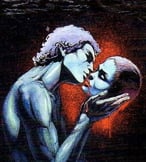
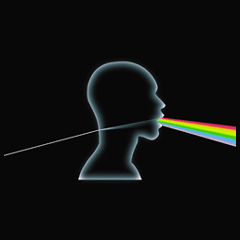
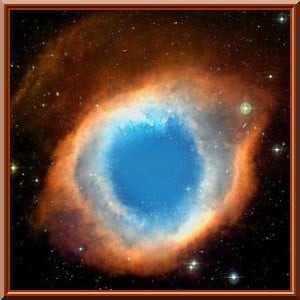

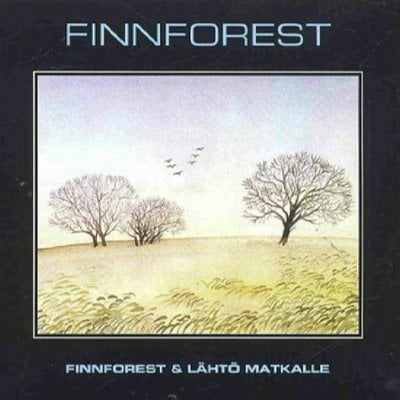
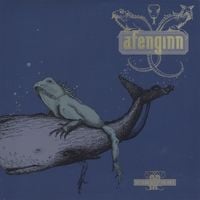





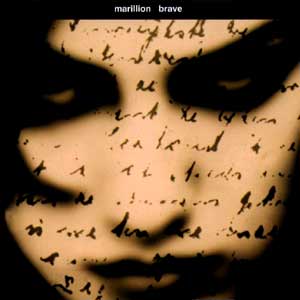


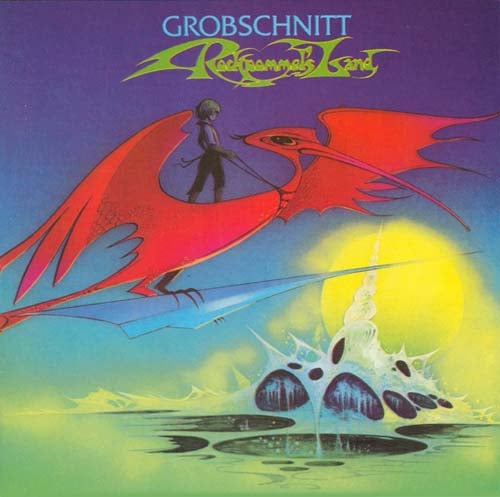
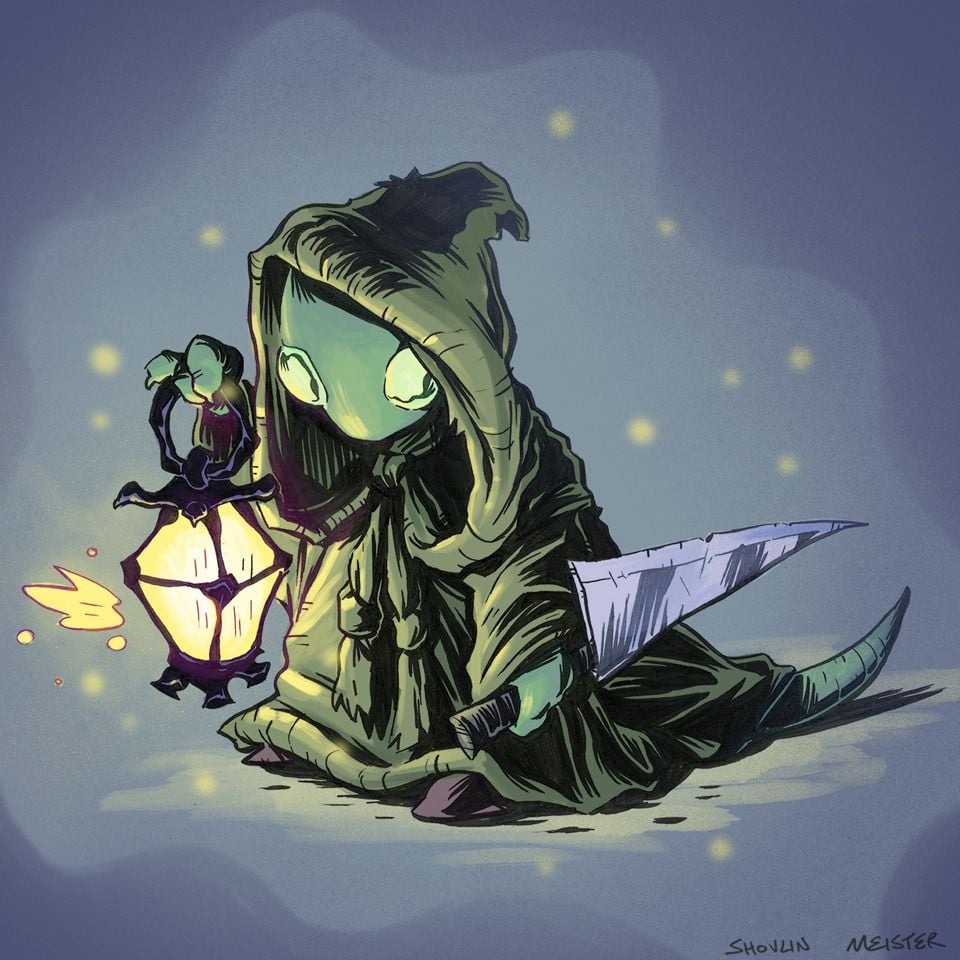
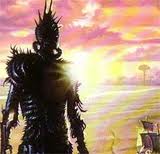

 |
|